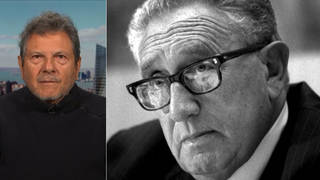
Topics
In Indonesia: In the first successful prosecution for the destruction of East Timor in 1999, an international courtsentenced a pro-Indonesian militiaman to 12 years in prison for murder. Joao Fernandes, 22, testified during his trialthat Indonesian army officers had given him a samurai sword and ordered him to kill independence supporters.
Hundreds of people died and most of East Timor was destroyed when the Indonesian army and its local auxiliaries wenton a rampage after voters decided to break away from Indonesia in a U.N.-sponsored independence referendum in Aug.1999.
In Vietnam: Decades after the war on Southeast Asia ended, the United Nations estimates that 3.5 million mines lieburied in battlefields across Vietnam, and explosions still kill people every year, including children. The country isalso strewn with bombs weighing up to 3,000 pounds, cluster bombs and live grenades.
In Cambodia: More than 40 per cent of what was once farmland is now a wasteland covered with mines, and land isurgently needed for 360,000 refugees returning from border camps where they were displaced by decade of strife.
In Chile: Human rights lawyers asked a Chilean judge to arrest and charge Augusto Pinochet with rights abuses onWednesday, one day after the former dictator was questioned about violence during his 1973-1990 regime. Judge JuanGuzman wants to charge Pinochet with planning the kidnappings and murders of more than 70 leftists who fell victim tothe “Death Caravan,” a military squad that traveled Chile in the weeks after Pinochet’s 1973 coup to oust socialistPresident Salvador Allende.
The transcript of the interrogation quotes Pinochet as saying: “I did not order anyone to be killed.”
In 1975, he told a different tale: The general boasted, “Never a leaf moves in Chile without my knowing of it.”
What do these news stories have in common. They are linked by the legacy of one man. Henry Kissinger.
To many, Kissinger is one of the outstanding diplomats of the century, to others, a war criminal. Compton’sencyclopedia calls him the most influential foreign policy figure in the administrations of United States presidentsRichard Nixon and Gerald Ford. Secretary of state from 1973 to 1977, the encyclopedia continues, Kissinger was themost notable exponent of shuttle diplomacy, making frequent trips overseas to solve complex international problems.
Indeed no one was more impressed with Kissinger’s ability to solve problems than the doctor himself. “There cannot bea crisis next week,” Kissinger once said. “My schedule is already full.”
When Tom Lehrer was asked why he quit writing satirical songs, he replied that after Henry Kissinger won the NobelPeace Prize in 1973, there was nothing left to satirize. There remains, however, much to discuss.
That is what Christopher Hitchens does in a biting two-part article in Harpers Magazine. The first installmentappears in the February issue.
Guest:
- Christopher Hitchens, a columnist for The Nation magazine and Vanity Fair and author ofnumerous books including ??No One Left To Lie To: The Values of the Worst Family.
??
??
??
????
??











Media Options